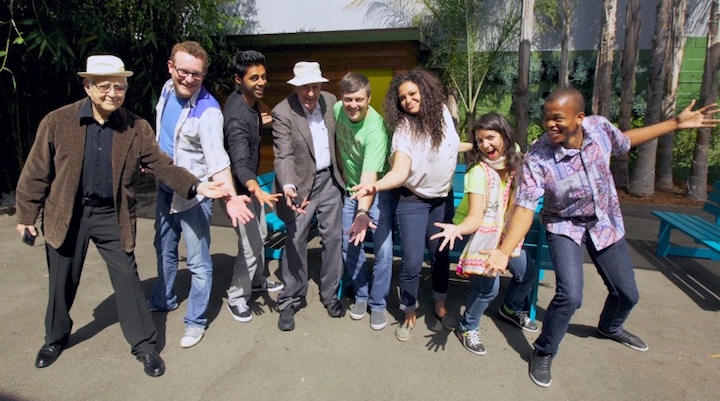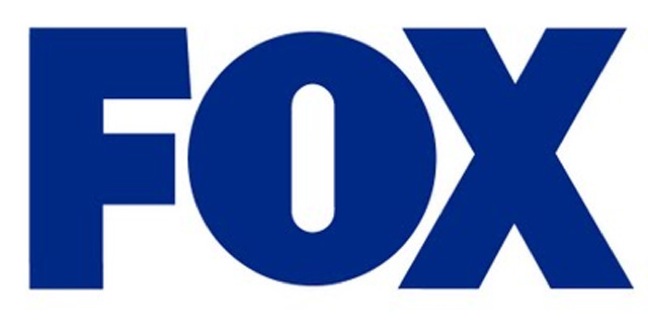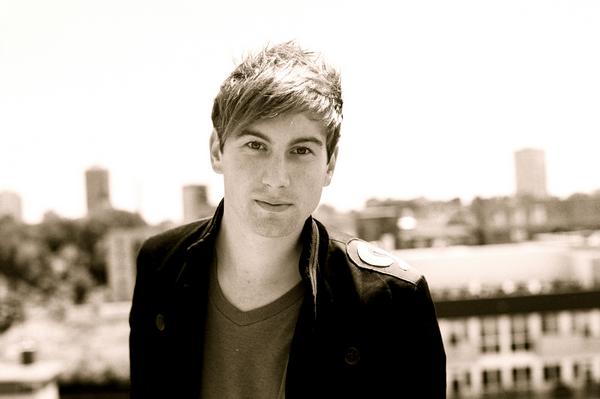Eddie Izzard’s “Force Majeure” global tour kicked off the first of five nights in New York City on Tuesday, with Izzard performing in French, German, Spanish, gibberish and plenty of plain English over the course of two hours. Izzard has taken his stream-of-silly-consciousness stand-up act all over the world, and learned how to translate his jokes into multiple languages for all corners of the globe.
There’s a great big planet out there.
And yet, it is a small world, after all.
It turns out that even India and South Africa love good poop jokes and dick jokes — it’s just that theirs come from a much different place and grounding. Particularly when 54 percent of Mumbai’s residents still shit in the streets. Or only a fraction of the young men in South Africa are getting a fraction of their foreskins removed via circumcision.
The dichotomy, the oxymoron, the humor of it is explored by comedian Hasan Minhaj in Stand Up Planet, a new hourlong documentary that premieres tonight on Pivot, KCET-TV and LINK TV.
“It’s kind of Anthony Bourdain’s No Reservations meets stand-up comedy,” Minhaj told The Comic’s Comic.
Minhaj ventured to India and South Africa, following the comedians and their jokes into the streets of Mumbai, Johannesburg, Soweto. He met Tanmay Bhat, Aditi Mittal, Loyiso Gola, Kagiso Lediga, and Mpho Popps along the way, and then invited two of them back to Los Angeles to perform with his friends — Michelle Buteau, James Adomian and Nate Bargatze — at the Laugh Factory in Hollywood. They also met up with Bill Cosby, Carl Reiner and Norman Lear to share their experience, strength and wisdom.
Here’s the official trailer:
Minhaj spoke with The Comic’s Comic about making Stand Up Planet.
He said he’d heard of other documentaries looking at comedy abroad such as Just Like Us. This is not like that, either. Nor is it anything like the 2005 Albert Brooks film, Looking for Comedy in the Muslim World. This is real life.
“I was approached by this company called Content Films out of San Francisco,” Minhaj said. “They had gotten a grant from the Bill and Melinda Gates Foundation. They were looking to fund these new narratives. New narratives that talk about social issues around the world. They’re like, ‘Look. We don’t want to do a UNICEF 17-cents-a-day-type-of-situation anymore. What’s an interesting way we can do it?’ You know what I mean? Talk about people’s lives.”
Minhaj had started to talk about his life as first-generation immigrant in his own stand-up comedy routines.
“I grew up here, but my sister grew up in India,” he said. “I first met her when I was 8, here. So I had this joke in my act I talk about meeting her – the first time I met her I was in one room, she was in the other room. It was like Maury for immigrants. My dad brought her in, and said, ‘You are the brother!’”
As he recalls, the documentary’s producers posed a larger question to him: “Ostensibly, your parents immigrated here for great opportunities, for you to pursue your dreams, right? And your dream was to be a performer, and do stand-up comedy. What if I were to tell you that there is English-speaking stand-up comedy in India? Doesn’t that raise an interesting question? Did you necessarily need to leave?” To which he replied: “OK, that’s an interesting question.”
What happened instead is Minhaj followed the comedians he met onstage, offstage into the real life that inspires their material. “Tanmay has this joke about how you’ll see a guy taking a dump by the train tracks – he’ll be squatting by the train, dropping a deuce – but he’ll be swiping an iPhone. So it’s this great joke that is this juxtaposition of, we figured one thing out – democratizing cell phones and letting everyone play Angry Birds. But we don’t have this other thing figured out,” he said.
He said Tanmay’s podcast, All India Bakchod, is “his version of WTF.”
“One thing we take for granted in the States is censorship. How we get to say literally whatever we want,” Minhaj said. “Their podcast was so controversial that it was banned from iTunes. So they have to put it up on Soundcloud and other third-party resources. It still gets hundreds of thousands of downloads. It’s one of the most popular podcasts in India.”
Of Mittal, Minhaj noted: “She’s one of only three female performers in India. There’s a lot of gender roles and expectations that she’s breaking.”
Just in the decade since Brooks made his fictional movie, the technology has transformed how comedy is perceived around the world, and how open it is there.
“What was so great, they’re extremely familiar with every reference, every comedian,” Minhaj said. “I had one of the comedians ask me, ‘Do you perform at The Meltdown?’ It’s like, dude, I’m in Mumbai. The other side of the world, and they know about Kumail and Jonah’s show. And Emily’s show. In L.A. How do you even like? Well, Twitter, duh! Comedy there is also very much like a punk rock thing. Where they Tweet out a link and location of where the show is, and just 200 people will be at that show. And that, to me, is pretty rad. It’s pretty amazing.”
Minhaj had traveled to India before, but just to visit his extended family. “Never for comedy.” He performed at what was the Mumbai Comedy Store (owned by same Store people from London), but now goes by Canvas Laugh Factory. “Only acts from London and Australia and other places in Europe come. Not a lot of American acts go out there and they would do great.”
Cosby, Reiner and Lear joined the project as advisors through Link and the Gates Foundation.
“Norman, one of his big topics that really excited him about the project – he’s done so much breaking down barriers of censorship – and so when he found out about all of these different scenes around the world and what they’re doing to break down the walls, it really intrigued him,” Minhaj said. “The third part of the doc is we take one comedian from India, one comedian from South Africa, and we brought them back here to perform. They had me perform with their friends, so I had them perform with my friends. So, me, Adomian, Michelle Buteau, Nate Bargatze. Then we took them to interview Bill Cosby, Norman Lear and Carl Reiner. It was just amazing. It was incredible.”
Minhaj already is looking forward to getting back out to see more of what’s happening in comedy around the world.
“We also wanted to go to Nigeria and Brazil, which have English-speaking comedy scenes now,” he said. “We just couldn’t get the safety clearances to do it. But hopefully in our next iteration, we’ll do it.”
Stand Up Planet premieres tonight on Pivot, KCET-TV and LINK TV, followed by a stand-up comedy showcase.
How to watch:
KCET-HD: www.kcet.org/findkcet
(Top photo, from left to right: Norman Lear, James Adomian, Hasan Minhaj, Carl Reiner, Nate Bargatze, Michelle Buteau, Aditi Mittal, Mpho Popps)
Here are some stand-up clips from performers featured in Stand Up Planet:
Mpho Popps
Aditi Mittal
Loyiso Gola
Kagiso Lediga
Tanmay Bhat



